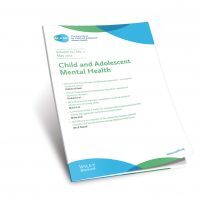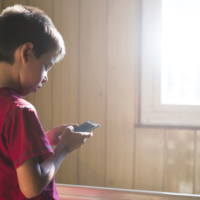Qualitative study
-

Nature based interventions in CAMHS wards can benefit patients and staff: helpful ideas from a qualitative practice-based paper
There is evidence that our surroundings matter, both psychologically and physically. Where we spend our time has an impact on how we feel. Much of what we have learnt about this comes from research in hospital settings.
Read more -

Research Review: The typical and atypical development of empathy: How big is the gap from lab to field?
Open Access paper from JCPP Advances – “Empathy-understanding and sharing someone else’s feelings-is crucial for social bonds. Studies on empathy development are limited and mainly performed with behavioural assessments. This is in contrast to the extensive literature on cognitive and affective empathy in adults. However, understanding the mechanisms behind empathy development is critical to developing early interventions to support children with limited empathy.” Chiara Bulgarelli and Emily J. H. Jones
Read more -

Schools engaged in doom-monitoring students’ online interactions and content creation: an analysis of dominant media discourses
Paper from the CAMH journal 2023 Special Issue – “Growing public concern about the safety and security of schools has led many schools and school districts within the United States to hire private companies to monitor students’ online interactions and the content they create, including on social media”. Kristjan Kikerpill and Andra Siibak
Read more -

CAMH Special Issue – ‘Mental Health and the Global Ecological Crisis’
To accompany the CAMH Special Issue on ‘Child and youth mental health & the global ecological crisis’ (January 2022), ACAMH is proud to bring you a series of events, content, and Open Access papers, focusing on the mental health implications of climate change.
Read more -

Voice-hearing can be positive for some young people
Researchers in Manchester have described the diverse forms and functions of voices heard by young people. Sarah Parry and Filippo Varese collected demographic, contextual and qualitative data from 68 adolescents (13-18 years old) from around the world who had direct experience of voice-hearing.
Read more -

Online self-harm content might provide peer support to young people
Youth today find themselves living in an era of social media, with easy access to a wide range of social networking sites. Unfortunately, emerging evidence suggests that some social technologies might cause more harm than good to some young people’s mental health.1,2
Read more -

What do young patients need when transitioning from child to adult mental health services?
Researchers have examined the ethical values that people expect to underpin the transition from child and adolescent mental health services (CAMHS) to adult mental health services (AMHS).
Read more -

Who can best support young people who self-harm?
A new study published in Child and Adolescent Mental Health has investigated what forms of support young people who self-harm find helpful.
Read more -

Creating a “SafeSpot” for mental health education in schools
SafeSpot is a digital educational programme that aims to raise awareness of mental health problems and develop helpful coping strategies to improve mental health in young people.
Read more -

“What young people think matters; a qualitative approach to the study of protective factors for mental well-being”
This blog shares findings from a new study comprising of two parts. Part one outlines a typology of profiles of adolescent reported protective factors in relation to mental well-being and the risk of mental disorder, using qualitative data. Part two applied the typology to identify trajectories of change in type membership occurring over one year, based on adolescent reports.
Read more